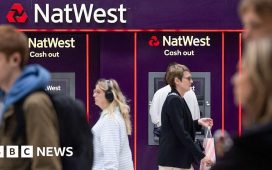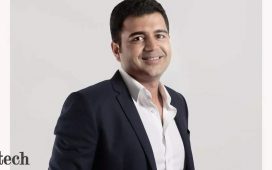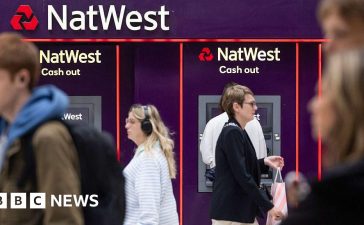Jack Dorsey, co-founder of Twitter Inc., speaks during the Bitcoin 2021 conference in Miami, Florida, U.S., on Friday, June 4, 2021.
Eva Marie Uzcategui | Bloomberg | Getty Images
Jack Dorsey’s Block got started as Square, offering small businesses a simple way to accept payments via smartphone. Affirm began as an online lender, giving consumers more affordable credit options for retail purchases. PayPal upended finance more than 25 years ago by letting businesses accept online payments.
The three fintechs, which were each launched by tech luminaries in different eras of Silicon Valley history, are increasingly converging as they seek to become virtual all-in-one banks. In their latest earnings reports this month, their lofty ambitions became more clear than ever.
Block was the last of the three to report, and the high-level numbers were troubling. Earnings and revenue missed estimates, sending the stock down 18%, its steepest drop in five years. But to hear Dorsey discuss the results, Block is successfully implementing a strategy of offering consumers the ability to pay businesses by smartphone, send money to friends through Cash App, and access credit and debit services while also getting more ways to invest in bitcoin.
“In 2024, we expanded Square from a payments tool into a full commerce platform, enhanced Cash App’s financial services offerings, and restructured our organization,” Dorsey said on Block’s earnings call on Thursday after the bell.
Block and an expanding roster of fintech rivals have all come to see that their moats aren’t strong enough in their core markets to keep the competition away, and that the path to growth is through a diverse set of financial services traditionally offered by banks. They’re playing to an audience of digital-first consumers who either didn’t grow up using a brick-and-mortar bank or realized at an early age that they had no need to ever set foot in a physical branch, or to meet with a loan officer or customer service rep.
“Longer term, we see a significant opportunity to grow actives, particularly among that digital-native audience like Millennial and Gen Z,” Block CFO Amrita Ahuja said on the earnings call.
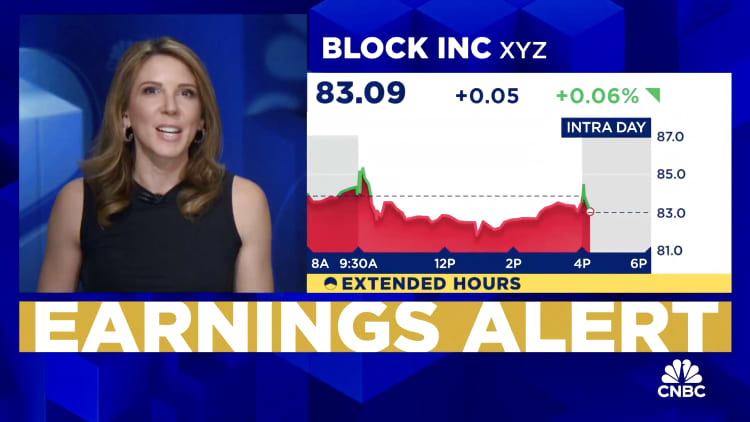
As part of its expansion, Block has encroached on Affirm’s turf, with an increasing focus on buy now, pay later (BNPL) offerings that it picked up in its $29 billion purchase of Afterpay, which closed in early 2022. Block’s market share in BNPL increased by one point to 19%, while Affirm held its position at 17%, according to a recent report from Mizuho. Both companies are outperforming Klarna in BNPL, the report said.
Block’s BNPL play is now tied into Cash App, with an integration activated this week that gives users another way to make purchases through a single app. With Cash App monthly active users stagnating at 57 million for the last few quarters, the company is focused on engagement rather than rapid user acquisition.
“We think that there is significant opportunity for growth longer term, but there are some deliberate decisions we’ve made as part of our banker-based strategy in the near term” that have kept user numbers from increasing, Ahuja said. “This is a part of our continuous enhancements to drive healthy customer engagement as we bank our base.”
Compared to Block, Wall Street had a very different reaction to Affirm’s earnings earlier this month, pushing the stock up 22% after the company’s results sailed past estimates.
Affirm founder and CEO Max Levchin, who was previously a co-founder of PayPal, built his company with the promise of giving consumers lower-cost and easy-to-tap intstallment loans for purchases like electronics, jewelry and travel.
The BNPL battlefront
In its latest earnings report, Affirm posted a 35% increase in gross merchandise volume to $10.1 billion. Revenue surged 47% to $770 million, while its active consumer base grew 23% to 21 million.
Beyond BNPL, Levchin has pushed Affirm into debit with the Affirm Card, which now has 1.7 million active users, up 136% year-over-year.
“Anything we can do to personalize the experience, to give people a chance to feel like this is the best alternative they have to their debit or their credit card is what we’re busy with,” Levchin said on the earnings call. He said the goal is to get the card to 20 million users, spending on average $7,500 per year.
Affirm is also partnering with FIS to bring its debit card functionality to traditional banks.
Levchin left PayPal in 2002, after the company was acquired by eBay. It was a decade before he’d start working to help popularize the modern day BNPL market.
Now his former employer, which spun back out from eBay in 2015, is in on the BNPL game.
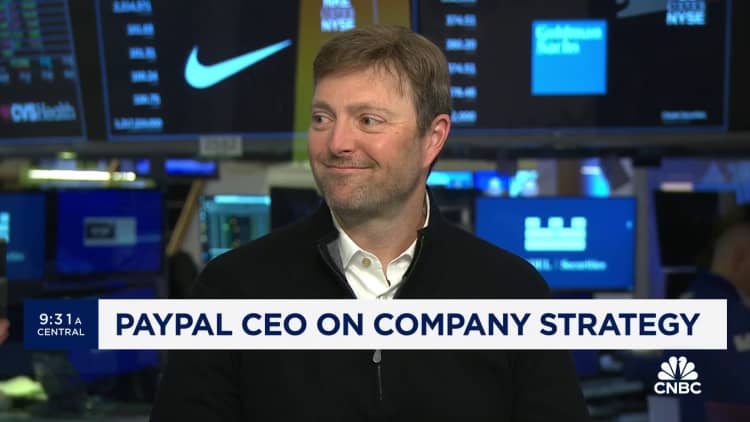
Under the leadership of CEO Alex Chriss, who took over the company in September 2023, PayPal is in the midst of a turnaround that involves working to better monetize products like Braintree and Venmo and joining the world of physical commerce with a debit card inside its mobile app.
Investors responded positively in 2024, pushing the stock up almost 40% after a brutal few years. But the stock dropped 13% after its earnings report, even as profit and revenue were better than expected. PayPal’s total payment volume for the quarter hit $437.8 billion, slightly below projections, while transaction margins rose to 47% from 45.8% — a sign of improving profitability.
One of Chriss’ big pushes is to get more out of Venmo, which has long been a popular way for friends to pay each other but hasn’t been a big hit with businesses. Venmo’s total payment volume in the quarter rose 10% year-over-year, with increased adoption at DoorDash, Starbucks, and Ticketmaster.
PayPal is also promoting Venmo’s debit card and “Pay With Venmo,” which saw 30% and 20% monthly active growth in 2024, respectively. The company is introducing new services to improve merchant retention, including its Fastlane one-click checkout feature, designed to compete with Apple Pay and Shopify’s Shop Pay.
Last year, the company launched PayPal Everywhere, a cashback-driven initiative designed to boost engagement within its mobile app. Chriss said on the earnings call that it’s “driving significant increases in debit card adoption and opening new categories of spend.”
As with virtually all financial services products, the new offerings from Block, Affirm and PayPal are designed to produce growth but not at the expense of profit. Banks operate at low margins, in large part because there’s so much competition for lower-priced loans and better cash-back options. There’s also all the costs associated with underwriting and compliance.
That’s the environment in which fintechs have to operate, though without the costs of running a network of physical branches.
Levchin talks about helping customers spend less, not more. And Block acknowledges the need for hefty investments to reach the company’s desired outcome.
“This is a part of our continuous enhancements to drive healthy customer engagement as we bank our base,” Ahuja said. “We’ve made investments in critical areas like compliance, support and risk. And as we’ve done that, we’ve progressed more of our actives through our identity verification process, which in turn, unlocks greater access to those actives to our full suite of financial tools.”
WATCH: CNBC’s full interview with PayPal CEO Alex Chriss


